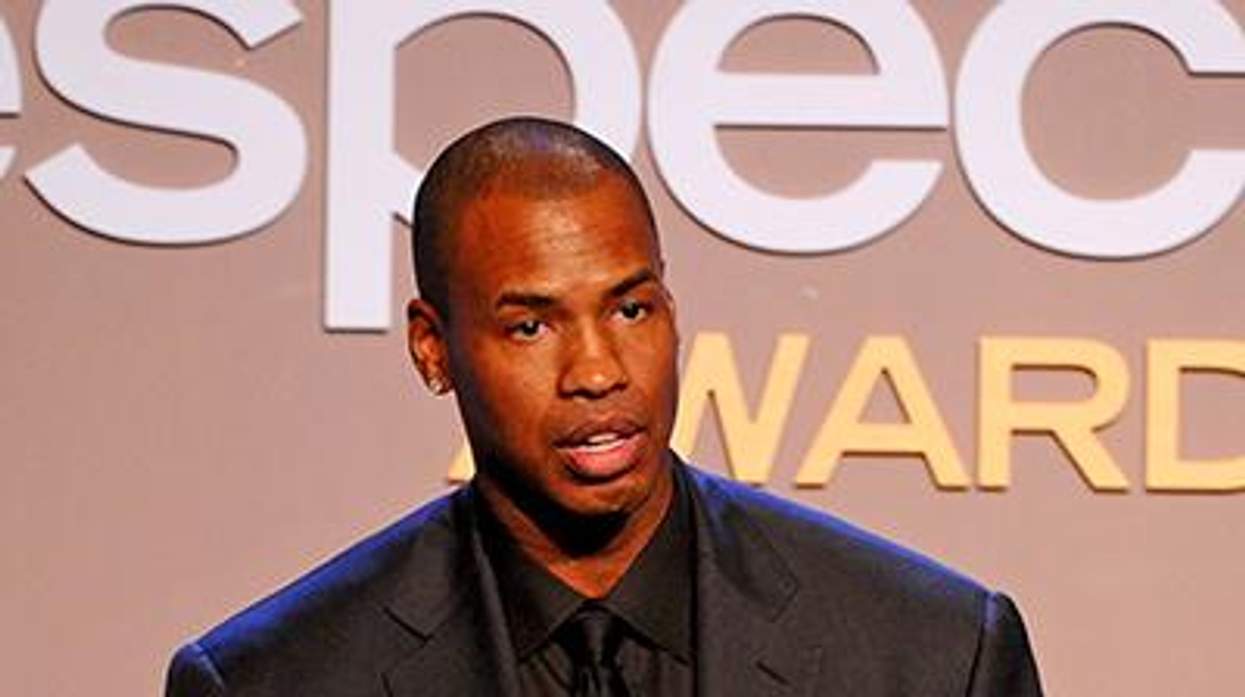The NBA regular season begins this evening, with the Brooklyn Nets -- last season's home for openly gay Jason Collins -- tipping off Wednesday night in Boston for their opener. Last week, Collins wrote a piece for the Huffington Post, iterating a call for inclusion in athletics and an embrace of sports as a medium for community.
Collins, who was honored this Saturday by his alma mater's LGBTQQI Alumni Network Stanford Pride, became the first openly gay active player in the NBA last season. He was named one of Time's "100 Most Influential People in the World" earlier this year, and - as he points out in his article - is a fervent supporter of GLSEN and the Matthew Shepard Foundation, having donated the proceeds of his Brooklyn Nets jersey sales to both groups last year. "They are two organizations that do tremendous work to replace hate with understanding, compassion, and acceptance," he wrote.
In the article, Collins described an exercise he did with his freshman dorm upon first arriving at Stanford. As a way to show community through diversity, he and his fellow freshman stood in a straight line and took a step forward when a question posed by the group leader applied to them. He recalled how that activity opened his eyes into a more inclusive way of thinking.
"I took a step forward," he wrote. "I looked around the room and saw a group of people of different religions, races, genders, you name it. And they all answered the same way I did. The actual questions that brought us together weren't important; the questions and answers that followed were. All of a sudden, a group of strangers realized a collective common ground which served as a jumping off point for conversation."
With his participation in programs like You Can Play and It Gets Better, Collins says he finds it important to help build confidence in young LGBT people, and particularly young, gay athletes. He sees sports as a safe place for all young people, and a way to escape an array of adversity at home, school, or elsewhere. Furthermore, he looks to sports to inspire young people of all walks of life to become leaders and advocates for equality.
"Your gender, religion, race, or sexual orientation has no effect on your ability to lead conversations," he wrote. "You can help others recognize the common ground and ultimately, you can change hearts and minds."




































































Charlie Kirk DID say stoning gay people was the 'perfect law' — and these other heinous quotes